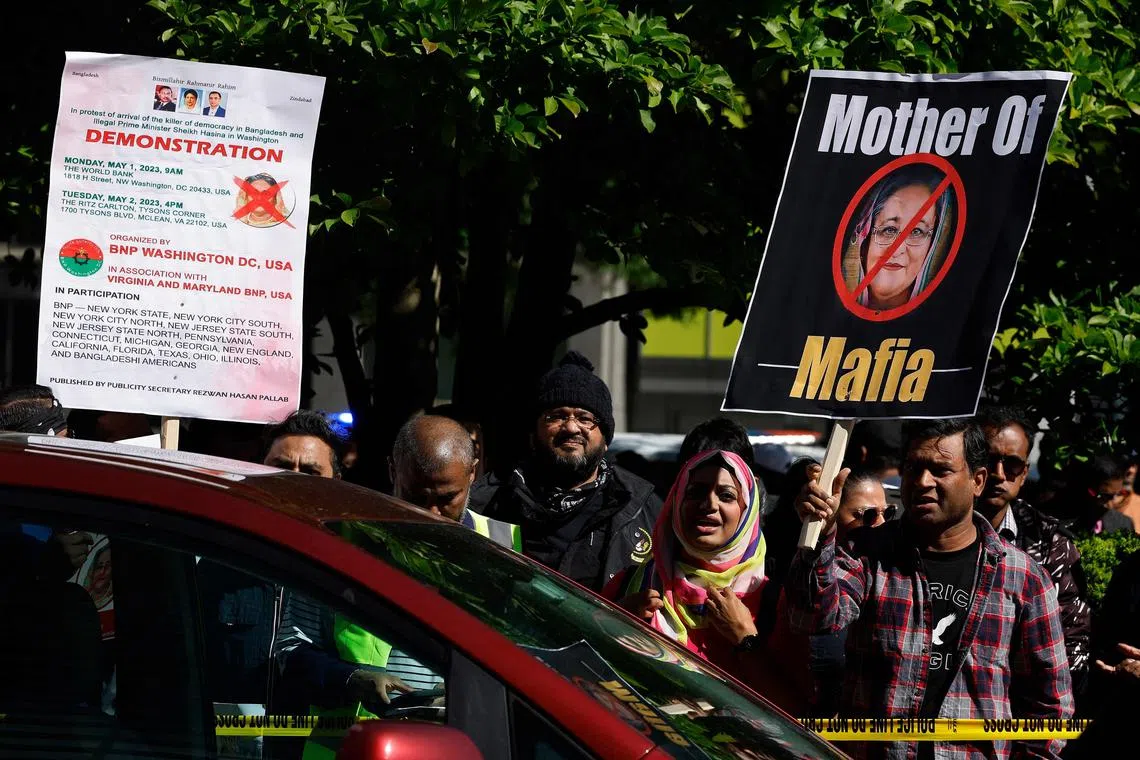Bangladesh says it will take steps to address election meddling after visa threat from US
Sign up now: Get ST's newsletters delivered to your inbox

Opponents of Bangladesh's PM Sheikh Hasina rallying in front of the World Bank on May 1, in Washington, DC.
PHOTO: AFP
Follow topic:
NEW DELHI – Bangladesh said on Thursday that it will take steps to prevent and address any unlawful practices or interference in the conduct of its elections, following a pre-emptive warning from the United States.
Secretary of State Antony Blinken said on Wednesday that the US would restrict visas to Bangladeshis who undermine elections, as fears mount of turbulence in the upcoming vote.
He said the US was supporting “free, fair and peaceful national elections” and would target both pro-government and opposition supporters in the deeply polarised nation.
“I am announcing this policy to lend our support to all those seeking to advance democracy in Bangladesh,” said Mr Blinken, who already has the authority under US law to restrict visas over election meddling.
He said the move could affect current or former officials and politicians and members of law enforcement, the judiciary and security services “believed to be responsible for, or complicit in, undermining the democratic election process in Bangladesh”.
“The holding of free and fair elections is the responsibility of everyone – voters, political parties, the government, the security forces, civil society and the media,” he said in a statement.
Bangladesh is scheduled to hold general elections in January 2024. The opposition has already been leading large protests, demanding that Prime Minister Sheikh Hasina hand over to a caretaker government and accusing her of irregularities in past votes.
State Department spokesman Matthew Miller said the visa announcement should not be interpreted as a US accusation against the government.
Ms Hasina has been in power since 2009 and has generally been seen as a Western ally, with her opposition to radical Islamism and business-friendly policies, and has especially close ties with neighbouring India.
But the US, under President Joe Biden, has also voiced concern on rights, criticising a law on digital security that has been seen as a way to curb online dissent, and did not invite Bangladesh to its two Summits for Democracy.
China has also been seeking influence in the world’s eighth most populous country, investing billions of dollars in infrastructure projects. AFP, REUTERS

